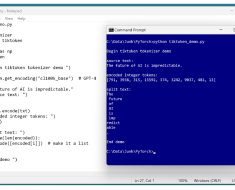@inproceedings{hu-etal-2023-llm,
title = "{LLM}-Adapters: An Adapter Family for Parameter-Efficient Fine-Tuning of Large Language Models",
author = "Hu, Zhiqiang and
Wang, Lei and
Lan, Yihuai and
Xu, Wanyu and
Lim, Ee-Peng and
Bing, Lidong and
Xu, Xing and
Poria, Soujanya and
Lee, Roy",
editor = "Bouamor, Houda and
Pino, Juan and
Bali, Kalika",
booktitle = "Proceedings of the 2023 Conference on Empirical Methods in Natural Language Processing",
month = dec,
year = "2023",
address = "Singapore",
publisher = "Association for Computational Linguistics",
url = "https://aclanthology.org/2023.emnlp-main.319",
doi = "10.18653/v1/2023.emnlp-main.319",
pages = "5254--5276",
abstract = "The success of large language models (LLMs), like GPT-4 and ChatGPT, has led to the development of numerous cost-effective and accessible alternatives that are created by finetuning open-access LLMs with task-specific data (e.g., ChatDoctor) or instruction data (e.g., Alpaca). Among the various fine-tuning methods, adapter-based parameter-efficient fine-tuning (PEFT) is undoubtedly one of the most attractive topics, as it only requires fine-tuning a few external parameters instead of the entire LLMs while achieving comparable or even better performance. To enable further research on PEFT methods of LLMs, this paper presents LLM-Adapters, an easy-to-use framework that integrates various adapters into LLMs and can execute these adapter-based PEFT methods of LLMs for different tasks. The framework includes state-of-the-art open-access LLMs such as LLaMA, BLOOM, and GPT-J, as well as widely used adapters such as Series adapters, Parallel adapter, Prompt-based learning and Reparametrization-based methods. Moreover, we conduct extensive empirical studies on the impact of adapter types, placement locations, and hyper-parameters to the best design for each adapter-based methods. We evaluate the effectiveness of the adapters on fourteen datasets from two different reasoning tasks, Arithmetic Reasoning and Commonsense Reasoning. The results demonstrate that using adapter-based PEFT in smaller-scale LLMs (7B) with few extra trainable parameters yields comparable, and in some cases superior, performance to powerful LLMs (175B) in zero-shot inference on simple math reasoning datasets.",
}
<?xml version="1.0" encoding="UTF-8"?>
<modsCollection xmlns="http://www.loc.gov/mods/v3">
<mods ID="hu-etal-2023-llm">
<titleInfo>
<title>LLM-Adapters: An Adapter Family for Parameter-Efficient Fine-Tuning of Large Language Models</title>
</titleInfo>
<name type="personal">
<namePart type="given">Zhiqiang</namePart>
<namePart type="family">Hu</namePart>
<role>
<roleTerm authority="marcrelator" type="text">author</roleTerm>
</role>
</name>
<name type="personal">
<namePart type="given">Lei</namePart>
<namePart type="family">Wang</namePart>
<role>
<roleTerm authority="marcrelator" type="text">author</roleTerm>
</role>
</name>
<name type="personal">
<namePart type="given">Yihuai</namePart>
<namePart type="family">Lan</namePart>
<role>
<roleTerm authority="marcrelator" type="text">author</roleTerm>
</role>
</name>
<name type="personal">
<namePart type="given">Wanyu</namePart>
<namePart type="family">Xu</namePart>
<role>
<roleTerm authority="marcrelator" type="text">author</roleTerm>
</role>
</name>
<name type="personal">
<namePart type="given">Ee-Peng</namePart>
<namePart type="family">Lim</namePart>
<role>
<roleTerm authority="marcrelator" type="text">author</roleTerm>
</role>
</name>
<name type="personal">
<namePart type="given">Lidong</namePart>
<namePart type="family">Bing</namePart>
<role>
<roleTerm authority="marcrelator" type="text">author</roleTerm>
</role>
</name>
<name type="personal">
<namePart type="given">Xing</namePart>
<namePart type="family">Xu</namePart>
<role>
<roleTerm authority="marcrelator" type="text">author</roleTerm>
</role>
</name>
<name type="personal">
<namePart type="given">Soujanya</namePart>
<namePart type="family">Poria</namePart>
<role>
<roleTerm authority="marcrelator" type="text">author</roleTerm>
</role>
</name>
<name type="personal">
<namePart type="given">Roy</namePart>
<namePart type="family">Lee</namePart>
<role>
<roleTerm authority="marcrelator" type="text">author</roleTerm>
</role>
</name>
<originInfo>
<dateIssued>2023-12</dateIssued>
</originInfo>
<typeOfResource>text</typeOfResource>
<relatedItem type="host">
<titleInfo>
<title>Proceedings of the 2023 Conference on Empirical Methods in Natural Language Processing</title>
</titleInfo>
<name type="personal">
<namePart type="given">Houda</namePart>
<namePart type="family">Bouamor</namePart>
<role>
<roleTerm authority="marcrelator" type="text">editor</roleTerm>
</role>
</name>
<name type="personal">
<namePart type="given">Juan</namePart>
<namePart type="family">Pino</namePart>
<role>
<roleTerm authority="marcrelator" type="text">editor</roleTerm>
</role>
</name>
<name type="personal">
<namePart type="given">Kalika</namePart>
<namePart type="family">Bali</namePart>
<role>
<roleTerm authority="marcrelator" type="text">editor</roleTerm>
</role>
</name>
<originInfo>
<publisher>Association for Computational Linguistics</publisher>
<place>
<placeTerm type="text">Singapore</placeTerm>
</place>
</originInfo>
<genre authority="marcgt">conference publication</genre>
</relatedItem>
<abstract>The success of large language models (LLMs), like GPT-4 and ChatGPT, has led to the development of numerous cost-effective and accessible alternatives that are created by finetuning open-access LLMs with task-specific data (e.g., ChatDoctor) or instruction data (e.g., Alpaca). Among the various fine-tuning methods, adapter-based parameter-efficient fine-tuning (PEFT) is undoubtedly one of the most attractive topics, as it only requires fine-tuning a few external parameters instead of the entire LLMs while achieving comparable or even better performance. To enable further research on PEFT methods of LLMs, this paper presents LLM-Adapters, an easy-to-use framework that integrates various adapters into LLMs and can execute these adapter-based PEFT methods of LLMs for different tasks. The framework includes state-of-the-art open-access LLMs such as LLaMA, BLOOM, and GPT-J, as well as widely used adapters such as Series adapters, Parallel adapter, Prompt-based learning and Reparametrization-based methods. Moreover, we conduct extensive empirical studies on the impact of adapter types, placement locations, and hyper-parameters to the best design for each adapter-based methods. We evaluate the effectiveness of the adapters on fourteen datasets from two different reasoning tasks, Arithmetic Reasoning and Commonsense Reasoning. The results demonstrate that using adapter-based PEFT in smaller-scale LLMs (7B) with few extra trainable parameters yields comparable, and in some cases superior, performance to powerful LLMs (175B) in zero-shot inference on simple math reasoning datasets.</abstract>
<identifier type="citekey">hu-etal-2023-llm</identifier>
<identifier type="doi">10.18653/v1/2023.emnlp-main.319</identifier>
<location>
<url>https://aclanthology.org/2023.emnlp-main.319</url>
</location>
<part>
<date>2023-12</date>
<extent unit="page">
<start>5254</start>
<end>5276</end>
</extent>
</part>
</mods>
</modsCollection>
%0 Conference Proceedings %T LLM-Adapters: An Adapter Family for Parameter-Efficient Fine-Tuning of Large Language Models %A Hu, Zhiqiang %A Wang, Lei %A Lan, Yihuai %A Xu, Wanyu %A Lim, Ee-Peng %A Bing, Lidong %A Xu, Xing %A Poria, Soujanya %A Lee, Roy %Y Bouamor, Houda %Y Pino, Juan %Y Bali, Kalika %S Proceedings of the 2023 Conference on Empirical Methods in Natural Language Processing %D 2023 %8 December %I Association for Computational Linguistics %C Singapore %F hu-etal-2023-llm %X The success of large language models (LLMs), like GPT-4 and ChatGPT, has led to the development of numerous cost-effective and accessible alternatives that are created by finetuning open-access LLMs with task-specific data (e.g., ChatDoctor) or instruction data (e.g., Alpaca). Among the various fine-tuning methods, adapter-based parameter-efficient fine-tuning (PEFT) is undoubtedly one of the most attractive topics, as it only requires fine-tuning a few external parameters instead of the entire LLMs while achieving comparable or even better performance. To enable further research on PEFT methods of LLMs, this paper presents LLM-Adapters, an easy-to-use framework that integrates various adapters into LLMs and can execute these adapter-based PEFT methods of LLMs for different tasks. The framework includes state-of-the-art open-access LLMs such as LLaMA, BLOOM, and GPT-J, as well as widely used adapters such as Series adapters, Parallel adapter, Prompt-based learning and Reparametrization-based methods. Moreover, we conduct extensive empirical studies on the impact of adapter types, placement locations, and hyper-parameters to the best design for each adapter-based methods. We evaluate the effectiveness of the adapters on fourteen datasets from two different reasoning tasks, Arithmetic Reasoning and Commonsense Reasoning. The results demonstrate that using adapter-based PEFT in smaller-scale LLMs (7B) with few extra trainable parameters yields comparable, and in some cases superior, performance to powerful LLMs (175B) in zero-shot inference on simple math reasoning datasets. %R 10.18653/v1/2023.emnlp-main.319 %U https://aclanthology.org/2023.emnlp-main.319 %U https://doi.org/10.18653/v1/2023.emnlp-main.319 %P 5254-5276
Markdown (Informal)
[LLM-Adapters: An Adapter Family for Parameter-Efficient Fine-Tuning of Large Language Models](https://aclanthology.org/2023.emnlp-main.319) (Hu et al., EMNLP 2023)
ACL
- Zhiqiang Hu, Lei Wang, Yihuai Lan, Wanyu Xu, Ee-Peng Lim, Lidong Bing, Xing Xu, Soujanya Poria, and Roy Lee. 2023. LLM-Adapters: An Adapter Family for Parameter-Efficient Fine-Tuning of Large Language Models. In Proceedings of the 2023 Conference on Empirical Methods in Natural Language Processing, pages 5254–5276, Singapore. Association for Computational Linguistics.

![In-IDE Human-AI Experience in the Era of Large Language Models; A Literature Review. (arXiv:2401.10739v1 [cs.SE]) In-IDE Human-AI Experience in the Era of Large Language Models; A Literature Review. (arXiv:2401.10739v1 [cs.SE])](https://aigumbo.com/wp-content/uploads/2023/12/arxiv-logo-fb-235x190.png)

